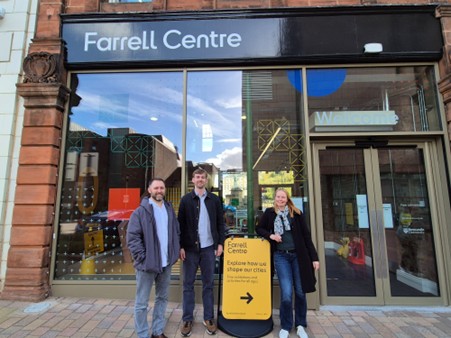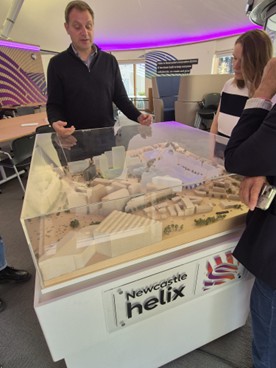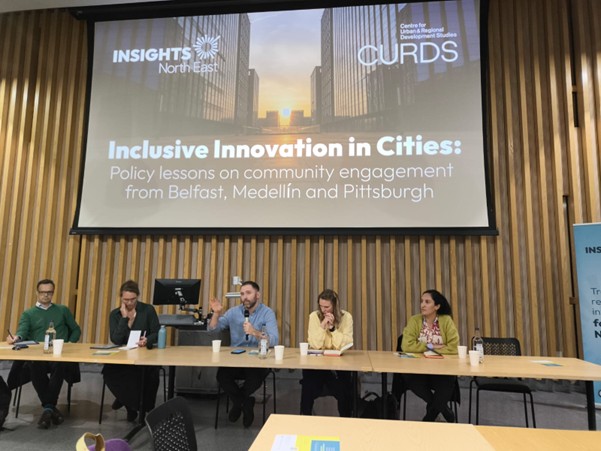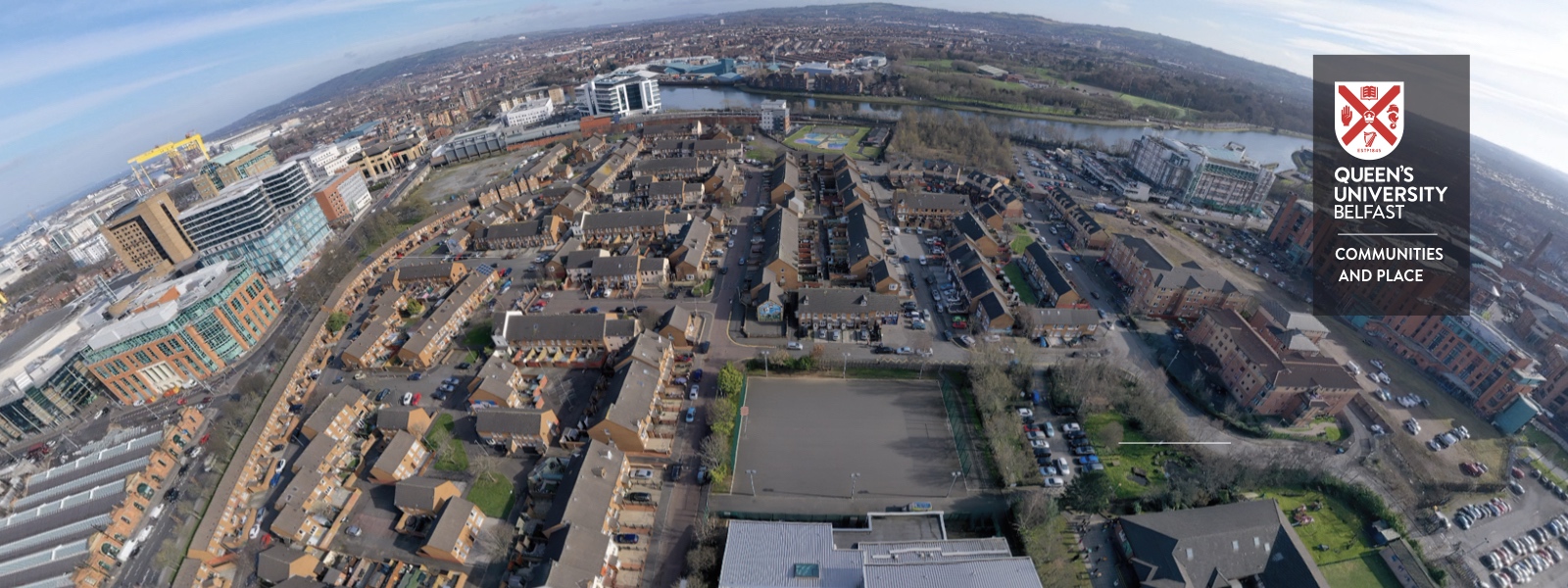QCAP’s i3o visit to Newcastle Helix
In October 2025, the Education, Skills, and Inclusive Innovation dimension of QCAP visited Newcastle University to share ideas and learn more about the work of fellow partners in Improving Inclusive Innovation Outcomes (i3o) project.

QCAP contributes to i3o’s examination of how communities and local residents engage with and benefit from innovation districts. The visit, which also included our colleague Kara Bailie from the Belfast Region City Deal, started with a meeting with John Seager, Estates Director of the Newcastle Helix. The Newcastle Helix is an Urban Innovation district that co-locates private companies, university buildings, housing, and a district energy centre all in the same area in order to advance a collaborative, cross-sectoral innovation agenda in the city. Collaborations occur between university researchers and the companies which have their offices in the Helix. A large amount of the office space is also utilised by SMEs. John Seager talked through what the district has brought to the area, including ongoing challenges and the process of balancing competing needs of the various groups who use the Helix space. It was interesting to hear that the growth of the Helix’s in future phases will include different social infrastructures and incorporate housing. This raises lots of questions for the Helix’s partnership team based at the ‘Key’ about how to connect these developments with the needs, priorities, and lives of the communities currently on its periphery.

Professor Louise Kempton then brought the group on a tour of the upcoming Health Innovation Neighbourhood currently under construction in West Newcastle. This neighbourhood will be the first Health Innovation Neighbourhood in the UK and will co-locate healthcare facilities, housing, and health research facilities to encourage innovative solutions to health problems.
The following day, Lizz Shutt, Director of Insights North East, introduced us to their work. The attending delegation discussed a wide range of interconnected themes that cut across QCAP’s work including turning academic research into policy action, best practice for collaborating with governmental actors, and the most effective ways of evaluating and measuring impact. The group also discussed future i3o plans for growth and future research outputs.
We then met with Newcastle City Council’ s Head of Engagement, who explained the situation with social housing in the city. Dr. Gareth Robinson (QUB) discussed the relevant work of QCAP colleagues on health interventions and suggested some possible solutions to the issues the Newcastle council workers raised around drug addiction, which they received enthusiastically. The group were then paired with housing officers and went on “get to know you” visits to meet some local tenants. This allowed the group to see the social housing stock first-hand and understand the experience of living in different parts of the city directly from residents. This made the earlier conversations all the more tangible.

That evening, the Pittsburgh, Medellín, and Newcastle colleagues launched their book about improving inclusive innovation outcomes. A panel of i3o colleagues including Dr. Gareth Robinson (QUB) then discussed their respective contexts and insights on community engagement . They touched on differences in spatial distribution of innovation in their cities, devolution of decision-making, respective skills pipelines, the timelines for change, and their local histories which impacted current inclusive innovation.
The following day, the group took part in a workshop at Newcastle University around similar themes, but focusing on the specificities of engaging different populations and communities in innovation processes across the four i3o contexts. Those participating, including academics from a variety of disciplines, alongside private and public sector stakeholders, discussed a wide range of ideas and how best to engage with communities beyond just surface-level consultation. It was striking how the different contexts shared similar challenges of engagement, but also that certain factors were important for all to incorporate into thinking: time matters, place can be a resource, community challenges are fluid, and that engagement is a process rather than a product.
QCAP, as part of the i3o consortium, are looking forward to an upcoming visit to Medellín in December where we will learn about the unique context of inclusive innovation taking place in Colombia’s second-largest city. We will hear about how Medellín was transformed through a combination of devolution policies that prioritised local decision-making, through improved interconnection of areas (such as an innovative cable car infrastructure), and much more.

